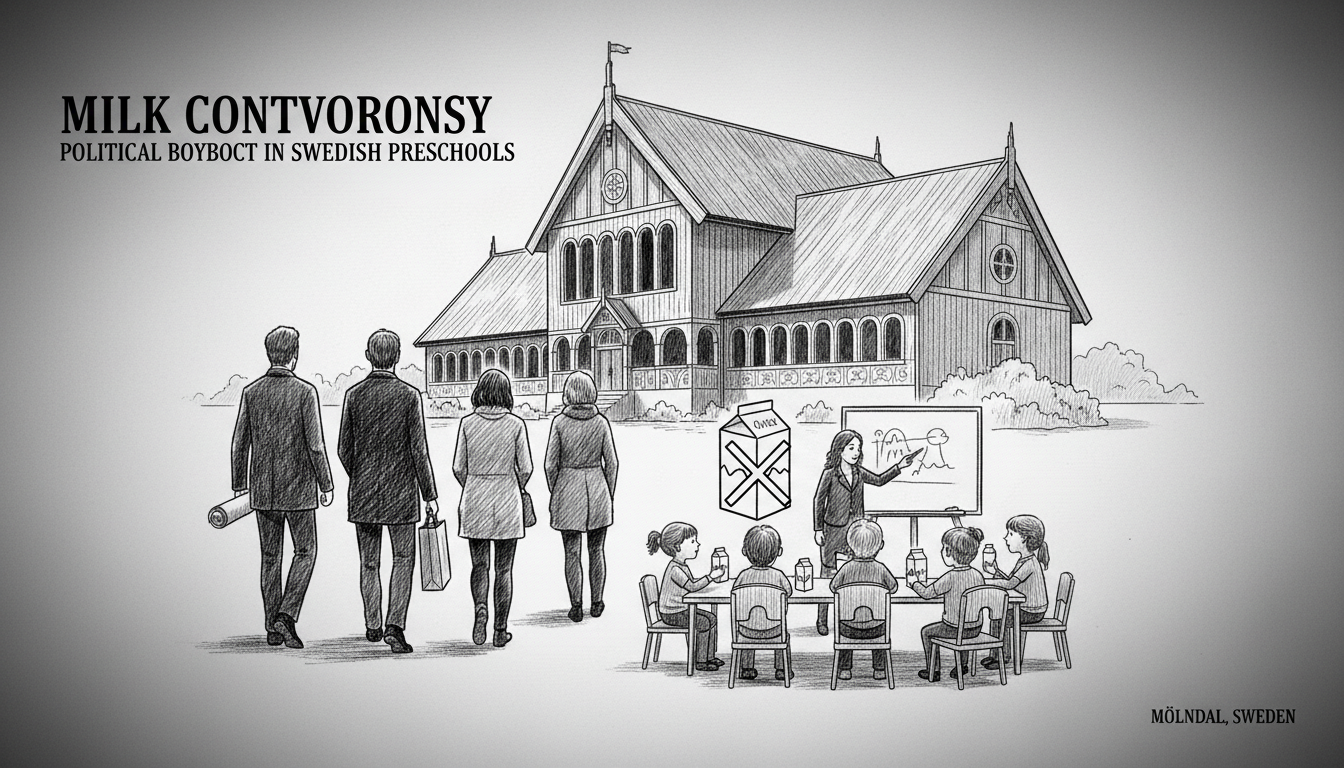A simple decision about milk service has created political turmoil in Mölndal preschools. Municipal officials first removed milk from lunch menus, then reversed course and reinstated it. This back-and-forth prompted politicians to boycott a key committee decision.
Lennart Svensson, vice chair of the service committee, expressed frustration about the situation. He questioned whether politicians should micromanage food details. Should they specify carrots in meat sauce too, he asked rhetorically.
This Swedish preschool milk debate reflects broader tensions in Nordic childcare systems. Swedish municipalities operate most preschools through local service committees. These bodies balance nutritional standards with budget constraints.
Nutrition experts note that milk provides important nutrients for growing children. Swedish dietary guidelines recommend dairy products for young children. Yet some schools experiment with plant-based alternatives for environmental or dietary reasons.
The political response shows how seemingly small decisions can escalate. When politicians boycott meetings, it signals deeper governance issues. Such conflicts often arise during budget discussions or policy changes.
International readers might find this level of political involvement surprising. In Sweden, local politicians frequently engage with operational details. This contrasts with systems where administrators make most day-to-day decisions.
The Mölndal preschool milk situation continues to develop. Parents and staff await clearer guidelines about future meal planning. The controversy highlights how food choices in public institutions often carry political weight.
Similar debates have occurred across Nordic countries recently. Copenhagen faced questions about organic food in schools. Oslo discussed reducing meat consumption in public meals. These discussions reflect changing attitudes toward food, health and sustainability.
For families moving to Sweden, understanding these dynamics matters. Food preferences, allergies and cultural practices all influence school meal policies. The current debate may lead to more flexible approaches in the future.
The immediate impact remains unclear. Will the committee establish clearer decision-making processes? Could this affect other municipal services beyond preschool meals? These questions linger as the community seeks resolution.

